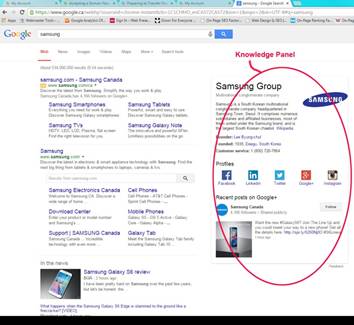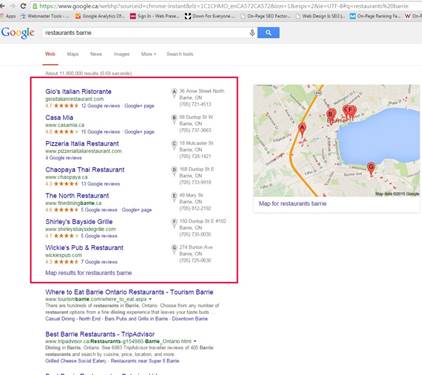The web is becoming more semantic in a sense that search engines are trying to associate meaning to content. In the past, search engines saw content as just a bunch of words on a web page with no more meaning than the general topic of the page. This is no longer the case.
I am sure by now you have noticed all the meta information in the Google search results page. What it is I am referring to are the “Map Stacks”, “Knowledge Panels”, etc. If you are unsure, refer to the images below.
Image 1 – this is an example of a Knowledge Panel. It takes all the meta data of a company and offers it to the user right in the search results page. It shows information such as: company logo, company description, social media accounts, address, phone number, contacts, type of contact, type of business etc.
Image 2 – This image is displaying local restaurants locations, phone numbers, reviews, and links to Google Plus Pages.
These are just 2 examples of how meta data is important and can help you in the search results page. One important factor is having a local Google Plus Business page. Another factor is using “Schema Mark-up”. What is schema mark-up?
Schema markup is simply attributes that you add to your HTML tags. You can find all types and uses of schema markup at www.schema.org. What this “micro data” does, is allows the search engines to identify what type of information you are supplying. This information can include: Events, people, places, things, occupation and the list goes on. Below is an example of schema markup.
This markup is an example right from www.schema.org. What this markup is doing is telling the search engines, “hey! This piece of content is a physical business, with a physical location, and a phone number etc.
By using this markup strategy, it will help boost your local rankings in the SERPS and give you an edge over your competition that may not be using this micro data. The more search engines can associate meaning to data, the more they can associate meaning to search queries. So…What meaning does your markup have?





